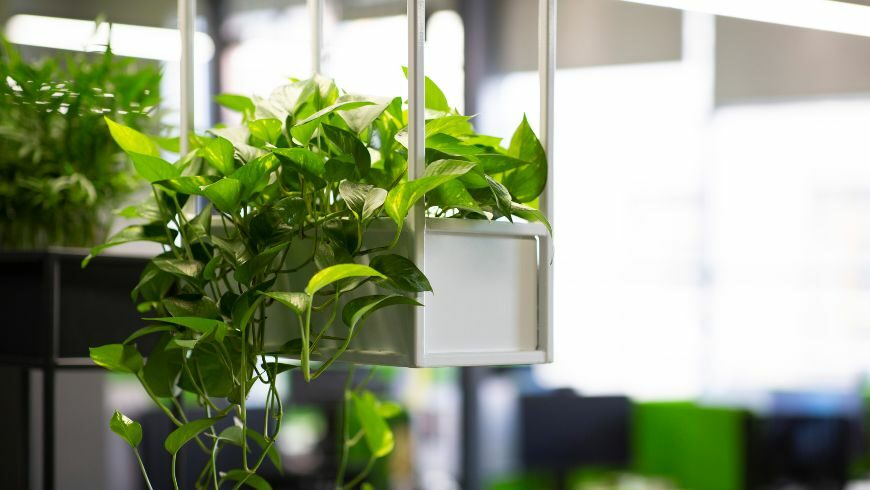Indeed, HR managers are mainly responsible for hiring human talent, welcoming new people onboard, and resolving any employee conflicts should they arise. But in practice, the actual HR manager’s responsibilities go beyond that and embrace a whole range of activities that seem to have nothing to do with HR. Well, at first glance, at least. After all, creating a welcoming, professional environment that minimizes employee turnover is also up to the human resources department. And with the younger, more environmentally conscious workforce already becoming a prominent part of the workforce, companies should adopt and nurture more eco-friendly initiatives than ever before. The good news is that late millennials and early Zoomers do not need much encouragement to follow the company’s eco policies. The downside is that embracing green habits in the workplace is sometimes more challenging than it seems, considering that we still rely on too many materials that aren’t precisely planet-friendly. But small steps matter, too! And here are some top, easy-to-set-up examples of eco-sustainable habits HRs can (and should) nurture at work.
Make Recycling Simple and Accessible
It’s hard to avoid the temptation of throwing a plastic container in the general bin if your employees have to climb a few dozen stairs or go outside to reach the dedicated plastic disposal box. Don’t turn trash sorting into an impossible quest! Make sure your office has all the classic disposal containers — paper, plastic, unsorted organics — in the areas where they make the most sense. Obviously, it would be best if you started with the kitchen. But there could be other rooms, including common work areas, where the essential trashcan trinity can also be helpful.

Aim for a Paperless Office
Speaking of paper trashcans, you will not need too many of those if you manage to set up a fully (or almost) paperless office. It’s actually surprising how many companies in today’s digitalized world still print so much — notes, memos, announcements, invoices, contracts, etc. Eliminating all unnecessary paperwork — meaning, literal paperwork — and going all-docs-digital will simplify a lot of operations in the company, help sustain the environment, and may even save some money in the process.
Also, try to get rid of all paper cups and encourage your employees to go with reusable mugs and dishes. Printing mugs with corporate logos is not expensive but does wonders for the environment. If eliminating all paper and plastic cups is not an option, go for recyclable materials at least.

Reevaluate Your Energy Consumption
Another great way to both consider the environment and save money is to take a good critical look at your energy consumption. You can start with small things like energy-efficient lightbulbs and move on to more large-scale initiatives, like assessing all of your office electronics. Even major companies like Walmart are investing in energy-efficient refrigerators with low imprints on the environment, and we all know how successful they are! You can adopt a similar approach and start replacing old equipment with new, more eco- and energy-efficient one. Again, you can start small — electric kettles, coffee machines, water coolers, and office fridges. Eventually, you can opt for more significant and critical equipment — from office computers to air conditioning systems and thermostats.
Keep Carbon Imprint in Mind
If your company has any fleet vehicles, it makes sense to opt for electric models. While not exactly a way to minimize energy consumption, electric cars reduce our carbon imprint, which is way more important today. If you do not have any corporate vehicles, you probably still collaborate with companies that do — be it food delivery services or mail couriers.

To encourage a consistent eco-friendly strategy in the workplace, it’s essential to collaborate with agencies that make environmental initiatives their priority. It does not mean you should instantly sever all ties with your favorite Thai food chain simply because one courier drives an old wagon. But it would help if you kept searching for ways to ensure all parties in your supply and production chains mind the environment as much as you do — this will undoubtedly help send the right message to your colleagues.
Invest in Eco Infrastructure
It’s hard to nurture eco-friendly habits at work without the proper infrastructure. Just like you can’t expect people to sort the trash without providing them with suitable containers, you cannot expect them to ride a bike to work if there is no parking lot for bikes. Of course, designing such infrastructure is not the HR department’s sole responsibility— but neither is searching for eco-friendly suppliers or replacing energy-consuming equipment.
Still, it is up to HR managers to think of these initiatives and take them to the right executives who can implement the change. So, take a good look at how many people are taking carbon-free transport to work and think if there’s a way to encourage more colleagues to do the same, like setting up a larger bike parking lot, for starters. That’s not too expensive, but it definitely promotes the right message.
Get a Plant
Better yet — get more than one! It seems like a trifle thing to do, but even NASA researches prove that plants can remove plenty of indoor air pollutants, and NASA should definitely know what they are talking about. Sure, no one expects you to turn your open space office into an impenetrable jungle, but a few plants here and there can become an excellent decor addition while nurturing eco-friendly policies and sending the right message, of course.

Make It Fun!
Even though your Gen Y and Z employees are more than happy to support eco-friendly initiatives without much encouragement, adding a playful element to the whole process can be very helpful. Besides, it is vital to inform other less eco-conscious staff members about the importance of sustainable habits in the workplace. Just don’t turn it into a boring lecture about how icebergs are melting and polar bears are dying. This is tragic, of course, but it’s not the best way to reach your colleagues. Instead, think of something more creative, like a week without plastic challenge — not just at work, but also at home. Make it a competition with prizes, if necessary. Initiatives like these are excellent because they perfectly follow the ‘show, not tell’ principle and appeal to our competitive spirits, which is fun and motivating.

These are some universal examples to get started with, but the actual list can go on for pages. Of course, a lot will depend on your company size and business specifics, and if you feel that you can do more — go ahead, the sky is the limit!




